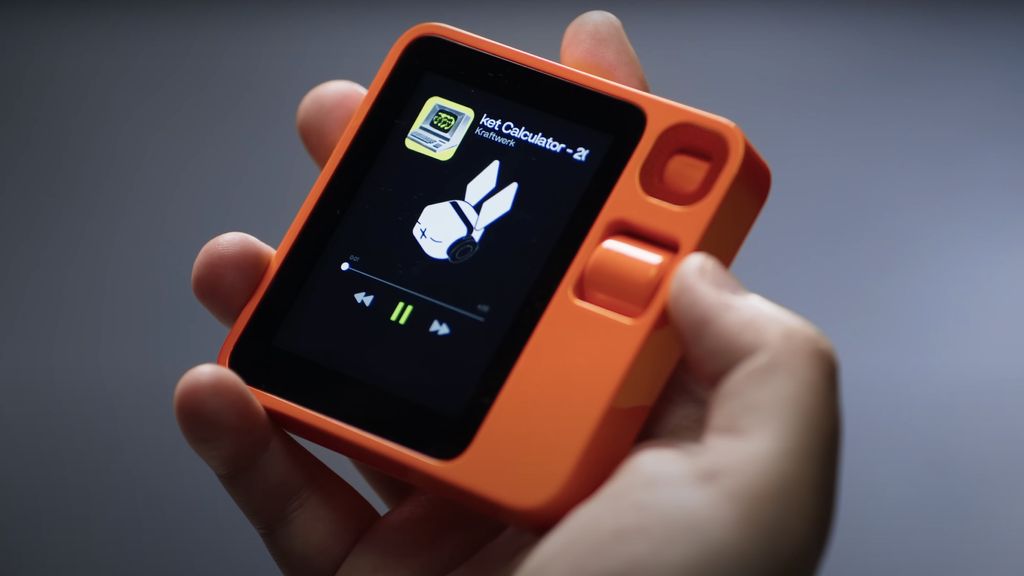Noos News•
-
Nando Castelline
Technical Editor
-
Nando Castelline
Technical Editor
It’s been possible for years: operating computers with your voice instead of your hands. Apple, Google, and Amazon have developed and marketed their own smart assistant and its accompanying speaker in recent years. Now as the artificial intelligence (AI) required for this purpose improves, two startups are bringing new tools to the market focused on voice control. Can they provide a breakthrough?
Tech companies have been trying to make voice control popular for years, but it’s still been difficult until now. All of today’s smart assistants have their limitations. Yelling “Hey Siri” doesn’t always get the desired result. Overall, virtual assistants haven’t dramatically changed how we interact with devices yet. Startups that have recently launched their products want to change that.
R1 and Ai Pin
For example, startup Rabbit wants to manage your entire digital life through its virtual assistant from now on. The company launched the R1 device this week at CES, the famous annual technology exhibition in Las Vegas. Given its bright orange appearance, the gadget is somewhat reminiscent of a toy with a screen. One that should be smarter than your phone. At least that’s the promise made by Rabbit in a no less than 25-minute introductory video.
The video in which the startup Rabbit introduces its virtual assistant:
The R1 has been one of the standout products at CES so far, and initial inventory — 10,000 units — has sold out quickly. The Rabbit video includes examples such as asking for a stock price or asking about the lead role in a movie Oppenheimer Or order a taxi suitable for six people and three pieces of luggage.
But it should also be possible to book a flight to London via the device with all kinds of personal preferences. This means that you should have great confidence in the choices of such a device. Booking a flight is usually a very personal matter. The video doesn’t explain why the R1 can do it better than you.
Revenue model
Rabbit’s revenue model also raises questions. The device itself costs around €180 and you don’t need a subscription. While the ability of a computer to process all the questions is very expensive. The question is how long this price will remain sustainable. Ai Pin costs more than three times as much and includes a monthly subscription.
The Ai Pin responds not only to your voice, but also to hand gestures and has a kind of “mini-displayer” with which you can display information in the palm of your hand, such as what song you are playing or who you are calling. It can also display a simple home screen, for example, date, time and weather.
“I think it’s hard to sell a new device that revolves around an AI assistant,” says Dave Murray Rost, associate professor of human algorithmic interaction design at TU Delft. “We already have this product. You could say ours is better, but that’s easier said than done.”
As far as we know, the tools have not yet reached the hands of journalists who were able to subject the product to conclusive tests. We have to settle for cool commercials where we don’t know, for example, how many attempts are needed to make certain demos and how many working versions actually exist.
Big challenges
However, Human and Rabbit will face quite a few challenges. Competitors with deep pockets and consumers who need to be convinced that this is what they need. It is not important that they produce games on a large scale.
Interestingly, tech blog The Verge, which was at Rabbit’s R1 demo in Las Vegas, only found one working copy. That’s for the CEO of the company. “I wouldn’t be surprised if these two companies are actually hoping to be acquired by a major technology company,” says Murray Rust.
The promise made by both startups is that talking to these devices will be extremely seamless. But the associate professor still has doubts about whether this is really the case. “An important issue is precision. When I do something with a mouse and keyboard, I can be very precise. This is always more difficult than with speech, because understanding what you mean is more important.”
If the new voice-controlled assistants master this well, he says, it will be a big step. “But it’s also dangerous, because they’re guessing what you mean. They might be right, but they might be wrong, too.”

“Lifelong zombie fanatic. Hardcore web practitioner. Thinker. Music expert. Unapologetic pop culture scholar.”








